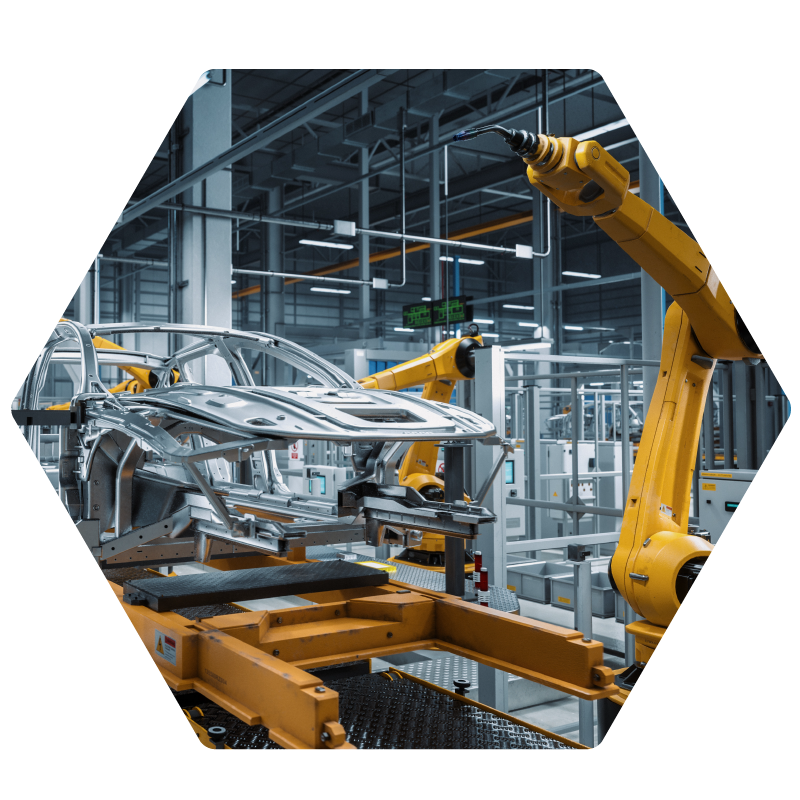Review of economic indicators
Navigating the green economy transition: Challenges and opportunities in the West Midlands and Warwickshire

A cursory search of the internet results in a raft of information on the future economic impact of the transition to a green economy and the implication for skills.
Whilst there is not one definitive model of this transition for the West Midlands and Warwickshire, an overarching theme of shared challenges emerges.
The transition to a green economy requires a workforce with the right skills. This includes not only skills in the low carbon and environmental goods and services sector, but also those needed to help all businesses use natural resources efficiently and sustainably and to be resilient to climate change.
HM Government: Skills for a Green Economy 2011
Upskilling workers will be necessary to address green skills shortages, as well as increasing the workforce in key sectors. Stakeholders suggest that the quality and uptake of vocational education and training (such as apprenticeships) are important factors for developing green skills in the workforce. There is low public awareness of green skills and the available training options.
UK Parliament Post: Green Skills in Education and Employment 2024
EngineeringUK – Net Zero Workforce November 2023
The report highlights the critical role of engineering solutions in decarbonising the UK economy, emphasising the need for skilled engineers, technicians, and scientists. The New Statement summarised it as follows:
If the UK is to achieve its goal of reaching net zero by 2050 an economic revolution is needed. Hundreds of thousands of workers will be required across multiple industries, many in entirely new roles. According to the non-profit organisation EngineeringUK’s latest net-zero workforce report the energy sector alone will need to fill 400,000 roles by 2050, across areas such as grid infrastructure, wind power and solar power. In the buildings sector, retrofitting will require 70,000 heat pump installers by 2035 while electric vehicles will generate 50,000 new jobs by 2040. While energy, transport and the built environment are the main areas of decarbonisation, the entire economy will need to take part in the green transition.
EngineeringUK – Net Zero Workforce November 2023
PwC Green Jobs Barometer March 2024
The PWC Green Jobs Barometer, tracks the UK’s transition to a greener economy. Broken down into economic regions and sectors, the Barometer measures performance through five key pillars: green job creation, wider benefits from green jobs, sunset jobs to disappear, carbon intensity of jobs, green workspaces.
The West Midlands’ overall Green Jobs Barometer ranking is 7 out of 12 regions with Scotland leading the way. The West Midlands ranks 9 out of 12 regions for green job creation and 7 out of 12 for sunset jobs to disappear.
According to the Barometer, skill gaps are evident in both white-collar and blue-collar professions within the green job market. Blue-collar jobs, particularly in electric vehicle manufacturing and retrofit sectors, face skills gaps. For instance, around 75% of electric vehicle manufacturing workers may require NVQ Level 2-3 qualifications, while the remaining 25% need higher-level qualifications. The retrofit sector requires an estimated 10,000 to 66,000 new tradespeople annually, posing a potential bottleneck. The shortage of skilled workers in sectors like retrofitting could hinder efforts to address the cost-of-living crisis, ensure energy security, and achieve net-zero goals.
Women and minority ethnic communities are underrepresented in fast-growing green sectors. Access to education and training is crucial for a just transition, along with efforts to raise awareness of green opportunities.
The Low Carbon & Environmental Technology sector is expected to grow dramatically in response to the need to decarbonise our economy. It already contributes £3.6 billion to GVA in the WMCA area alone, and could end up making up 10% of the entire economy. Harnessing this potential is critical
Sustainability West Midlands Roadmap to 2030
WorldSkillsUK & Learning and Work Institute – Green Skills Report
The report finds that the majority of employers, especially large organisations, currently require or anticipate needing green skills, particularly in electric vehicles, clean energies, and sustainable manufacturing.
- Six in ten employers report a green skills gap, impacting their ability to reduce emissions and manage energy costs.
- While most young people are inspired to pursue careers supporting emission reduction, they lack awareness of green skills and jobs.
- This knowledge gap, especially among young women, hinders them from fulfilling aspirations related to combatting climate change.
- There is a need for widespread information and advice on green skills, jobs, and careers
The report finds:
a stark disconnect between increasing employer demand for green skills, and young people’s lack of knowledge. A lack of awareness on green jobs, and what qualifications support progression to these roles, is thwarting young people’s aspirations for careers that can combat climate change and drive clean growth. In particular, this is frustrating the aspirations of young women to gain the high-quality skills businesses require to reduce emissions.
WorldSkillsUK & Learning and Work Institute – Green Skills Report
West Midlands and Warwickshire Local Skills Improvement Plan – May 2024
The West Midlands and Warwickshire LSIP strives to revolutionise post-16 technical education by prioritising businesses’ needs for innovation and growth. Led by regional Chambers of Commerce, the plan aims to foster a culture of collaboration and strengthen relationships between providers and businesses. Its findings include:
Engineering and Manufacturing (incorporating WMCA Priority Growth Clusters of Electric Vehicles and Battery; Aerospace)
- Skills shortages for roles like design engineers and planners, emphasising the need for ‘space skills’ in the aerospace sector, more electricians and more multiskilled staff.
- The need for a higher volume of broad engineering, mechanical engineering, design and development and electrification skills at levels 2 and 3.
- The need for better promotion of STEM at an earlier age.
- The need to upskill the existing workforce in electrification and for the existing automotive workforce converting to electric vehicles.
In Construction (incorporating WMCA Priority Growth Clusters: Modern and Low Carbon Utility; Manufacturing of Future Housing):
- Skills shortages in environmental surveying, new energy technologies, carbon literacy, retrofit digital, solar installations and battery storage products.
In Leadership & management
- Skills need to capitalise on opportunities related to digitisation, technological advancements, and the transition to net zero.
Skills training
- Training in a short, modular format would remove barriers of time and cost to a certain extent. It would also mean very specific skills needs could be tackled.
- Micro-credentials concept could mean those wanting to build up to a qualification over time could do so.
- Skills Bootcamps were viewed as good practice, and it was felt they could be extended to tackle technical skills in additional sectors and occupations.

